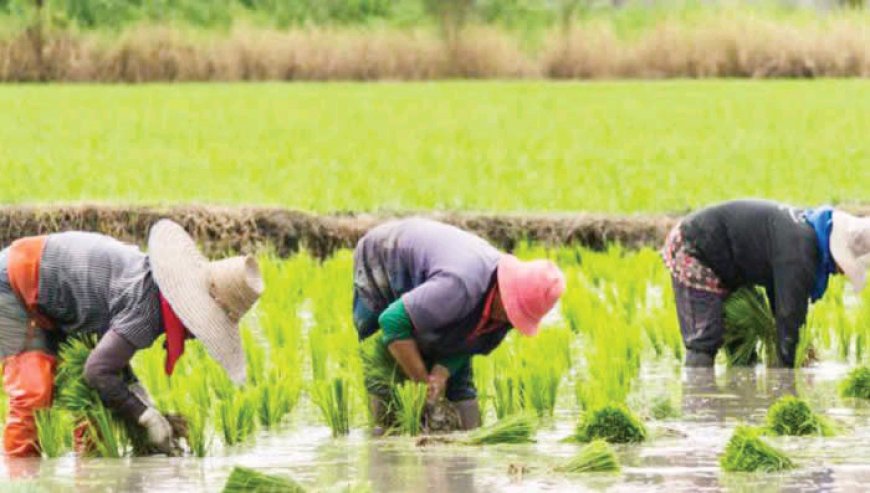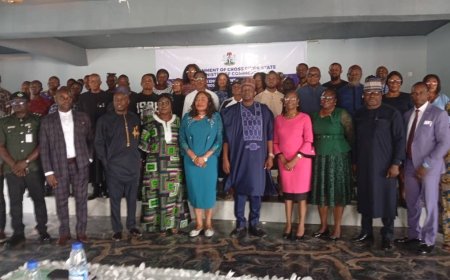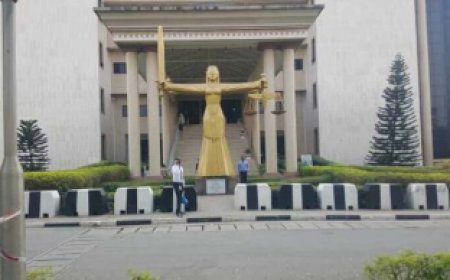Ebonyi State: Rice farmers envisage poor harvest in 2025 due to severe flooding

Rice farmers in Abakaliki, Ebonyi State, are envisaging a poor harvest this season due to persistent rainfall and widespread flooding across the state.
Speaking to News Agency of Nigeria (NAN) on Wednesday, the farmers warned that the situation is threatening the 2025 rice production cycle and could lead to a significant price increase for local rice.
They reported that continuous downpours have caused waterlogging and submerged vast farmlands, destroying crops in key rice-producing areas of the state.
As farmers count their losses,
Mr Emmanuel Nwali, a prominent rice farmer in Izzi Local Government Area, lamented that nearly half of his rice farm had been submerged due to the heavy rainfall.
“The floods have destroyed most of our work. What is left is already turning yellow.
It has been raining almost daily since mid-July. We may not expect a bountiful harvest this season." He recounted.
Another farmer, Mr Chinedu Okenwa, said he lost his nursery beds to flooding, resulting in the loss of major resources.
“I don’t know how to make up for the losses because, as it stands, I cannot transplant. The nursery has been destroyed.
We risk poor yield this season, and that may cause a sharp rise in the price of local rice next year. We are facing a difficult period due to the weather,” Nwali, lamented.
Similarly, Mr Aloysius Njoku, a commercial rice farmer, said he had lost a large portion of his rice farm to flooding and feared the development would negatively affect the harvest.
“The rains and the attendant flooding have been so devastating. If nothing is done, rice will become scarce and expensive, and everyone will feel it,” Njoku said.
Mrs Sylvia Elom, a civil servant and subsistence rice farmer, expressed concern that the destruction of farmlands by heavy rainfall would impact many households that rely on rice cultivation for their livelihood.
“Rice is the major source of income for the majority of our people who are mainly agrarians. When floods destroy our farms, we are left with nothing,” she said.














































